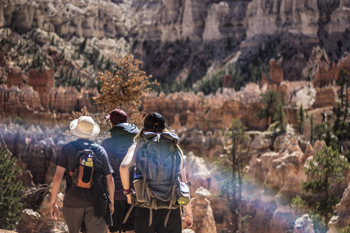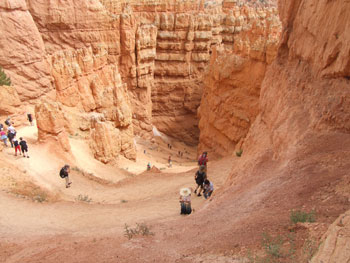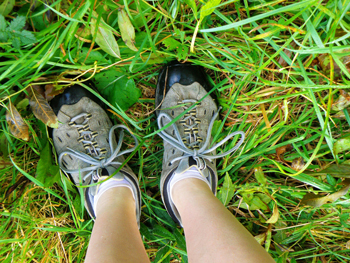This article may include affiliate links. If you click a link and make a purchase, Utah Outdoor Activities may receive a small commission at no extra cost to you. We only recommend products or services we personally use. FTC Affiliate Disclosure.
Are you physically prepared for this hiking season? If you hike or stay very active year round, then this article may not be for you. However, if you're one of those winter hibernators and the warm weather has you looking forward to the first hike of the season, then you may want to continue reading.

Before we get into this article we want to first share some stats. Did you know that on average 1400 people are rescued in Utah each year? Did you know that a large percentage of these rescue operations are for hikers? Each year a lot of hikers who are out enjoying a beautiful day in the mountains for some reason or another, end up needing assistance from one of the many Utah Search and Rescue Teams.
No matter how safe we try to be accidents can still happen. So the best thing we can do as outdoor enthusiasts who love to recreate is be prepared. In this article we will share 4 tips to help you get your hiking season started off as safe as possible.
1. Start with a Shorter Hike:
If you are heading to the mountains for your very first hike of the year, pick a shorter hike. One that gets your heart beating, blooding flowing, and lets your body acclimate to the uneven surfaces, and higher elevations. But not one that is too strenuous. Running on a flat track for 3 miles, although is excellent exercise, is not the same as hiking a trail with a 2720 feet of vertical gain.
Here is an interesting fact. For every 1000 feet of elevation gained you should add two additional energy miles. So, if you hike for one mile and gain 1000 feet of elevation, it will feel like 3 miles.
Choose a shorter hike to start out the season and increase your hiking distance as the season progresses.
2. Check your Gear:
Before you head into the mountains to begin your first hike, check your gear. Check your pack and be sure your hydration bladder and tubes are not leaking and hold water. Check your hiking shoes and be sure they have enough tread and of course be sure they still fit. If your feet are hurting, or you start getting blisters, then you have a greater chance of falling down, or taking longer than expected on your hike. Not to mention being miserable and not enjoying your outing.
While checking your gear make sure you have these ten essential in your backpack:

1. Navigation (map and compass)
2. Sun protection (sunglasses, sunscreen, hat)
3. Insulation (extra clothing)
4. Illumination (headlamp/flashlight)
6. Fire (waterproof matches/lighter/candles)
7. Repair kit and tools
3. Give Yourself Plenty of Time:
One of the most enjoyable parts of hiking in the backcountry is enjoying the scenery, viewing the wildlife, and stopping to take photos. Be sure when planning your hiking adventure you give yourself plenty of time to enjoy the hike as well as make it to the destination and back before dark. If a hiking trail has an estimated 2 hour hiking time, plan on doubling the time for breaks and sightseeing.
4. Know Your Limitations:
The limitations for each person will be different, however, it is very important to understand your limitations and listen to your body and gut.

Listening to your body and your gut could mean the difference between a successful hike, or one that ends tragically. Trust what your gut and body is telling you because most of the time it's right.
If your gut tells you to not get too close to the edge for a picture, then don't do it. If your body tells you to stop and rest, do it. If the trail you chose is too steep and rocky and your gut and body is telling you maybe this trail isn't for you, then trust what you are being told and turn back. If your gut has you worried about the storm cloud overhead, well it might be time to get to some shelter.
Now, we know there will be those that say you cannot achieve more unless you push yourself to the limit. Okay, we get it, but by the time your body and gut is talking to you, the limit is close to being reached.
The whole point of knowing your limitations is being conscious of your surroundings, and understanding what you are capable of doing and not doing.
Remember that hiking is not about the destination, but the experience of getting to that destination. The destination is just an added bonus.
So, stay safe this hiking season using these 4 tips. As with any outdoor activity make sure you tell your loved ones where you are going and what time you expect to return.
We hope you enjoyed this information. For more outdoor activities, please connect with us on YouTube, Facebook and Instagram. Help us keep this site up and running by visiting our online store which features outdoor themed gifts, decor and more. Thank you for visiting and for your ongoing support!